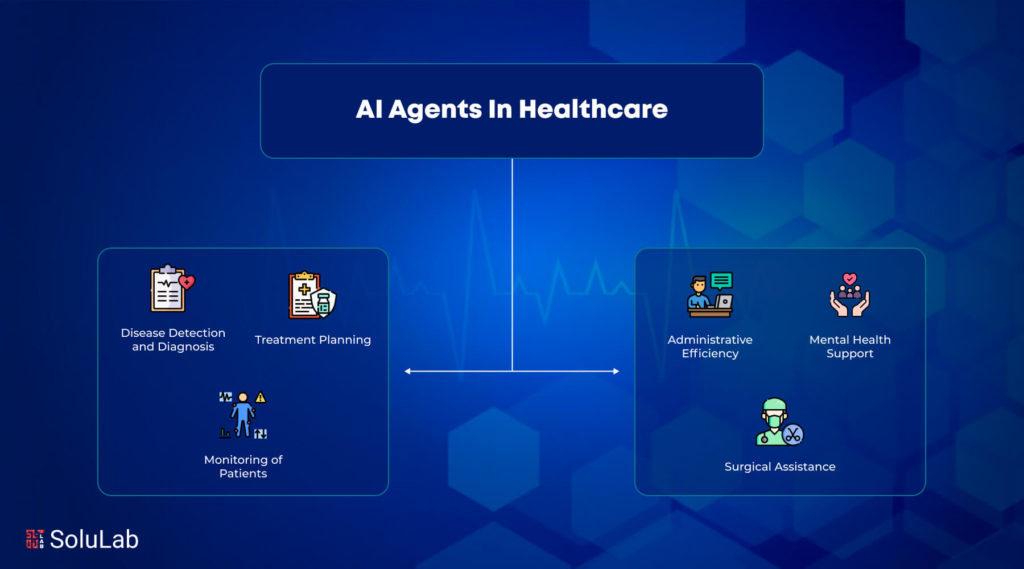Exploring the Role of Healthcare Companies in Delivering Quality Medicare Services
Exploring the Role of Healthcare Companies in Delivering Quality Medicare Services
Blog Article
How Insurance Works for Elders: Key Insights Into Medicare and Insurance Coverage Options
Understanding insurance coverage for seniors, especially Medicare, is crucial for efficient medical care monitoring. Medicare provides vital coverage, but its intricacies can be frustrating. Seniors have to navigate different parts, such as Parts A, B, and D, together with alternatives like Medicare Advantage and Medigap plans. Each choice effects their financial obligations and accessibility to solutions. Unboxing these elements discloses significant understandings that can influence their healthcare decisions. What are the crucial elements senior citizens should take into consideration?
Comprehending Medicare: An Overview

Medicare Parts A and B: What They Cover
Medicare Components A and B provide necessary insurance coverage for seniors, addressing both hospital and medical services. Component A concentrates on medical facility insurance, covering inpatient keeps and certain outpatient solutions. On The Other Hand, Part B uses coverage for an array of medical solutions, consisting of doctor sees and precautionary care.
Health Center Insurance Coverage Insurance Coverage
How do seniors navigate the intricacies of medical facility insurance policy protection? Medicare Part A supplies important health center insurance, covering inpatient stays, proficient nursing center care, hospice solutions, and some home wellness treatment. This insurance coverage is vital for senior citizens, as it aids manage the costs related to hospital stays and recovery.Medicare Part B, on the other hand, complements Part A by covering outpatient services, including medical professional sees, precautionary care, and analysis examinations. With each other, these two parts develop a complete safeguard for senior citizens, guaranteeing they have access to required healthcare. Recognizing the differences between Parts A and B allows seniors to make enlightened decisions about their healthcare needs and economic duties connected with hospital services.
Medical Solutions Protection
While passing through the intricacies of clinical solutions protection, elders take advantage of comprehending the certain offerings of Medicare Components A and B. Medicare Component A mainly covers inpatient medical facility keeps, proficient nursing facility treatment, hospice care, and some home healthcare solutions. In comparison, Medicare Component B concentrates on outpatient services, consisting of medical professional gos to, preventive care, diagnostic examinations, and resilient clinical tools. Additionally, Component B covers certain psychological health services and outpatient rehab. Together, these components provide a detailed structure for handling healthcare needs. Elders must familiarize themselves with the subtleties of these insurance coverage choices to ensure they maximize their advantages and reduce out-of-pocket expenses, eventually enhancing their accessibility to important medical solutions.
Medicare Advantage Strategies: An Alternative Technique
A growing number of seniors are exploring Medicare Benefit Plans as a viable option to traditional Medicare. These plans, additionally known as Medicare Component C, are used by exclusive insurer and include all advantages of Medicare Parts A and B, usually including additional services such as vision, oral, and health care. Numerous elders appreciate the structured approach, as these strategies generally provide a single policy that covers different medical care needs.Medicare Advantage Plans can present a cost-effective choice, with some plans even featuring low or no monthly costs. It is necessary for elders to examine the network of physicians and health centers linked with each strategy, as well as any kind of added out-of-pocket costs that may occur. Ultimately, choosing a Medicare Advantage Strategy needs cautious consideration of individual health and wellness requirements and financial conditions, guaranteeing seniors pick the alternative that ideal matches their lifestyle and medical care needs.
Prescription Medication Coverage: Medicare Component D
Medicare Component D offers necessary prescription medicine coverage for senior citizens, assisting to take care of the prices of needed medications. Comprehending the registration period is important for beneficiaries to maximize their advantages and prevent penalties. In addition, expense factors to consider play a considerable role in picking the ideal plan to match private health demands and financial scenarios.
Coverage Fundamentals Explained
Prescription medication coverage is a necessary element of health care for senior citizens, guaranteeing accessibility to necessary drugs. Medicare Part D provides a range of plans made to help cover prescription medication costs. These strategies are supplied by personal insurance policy firms accepted by Medicare and can vary commonly with regard to costs, deductibles, and covered drugs. Recipients commonly pay a regular monthly premium, together with copayments or coinsurance for each prescription. It's crucial for elders to review their options yearly, as costs and formularies may transform. Some people might likewise certify for Bonus Aid, a program that aids with out-of-pocket costs. Ultimately, understanding these fundamentals allows seniors to make educated decisions concerning their prescription drug insurance coverage.
Registration Period Details
Understanding the numerous enrollment periods for Medicare Component D is crucial for seniors looking for to safeguard their prescription medication protection. The First Registration Period (IEP) lasts seven months, starting three months before an individual turns 65 and finishing three months after. During this time, senior citizens can register in a Component D plan scot-free. The Annual Enrollment Duration (AEP) runs from October 15 to December 7 annually, allowing recipients to make modifications to their existing plans or enroll in a brand-new one. Furthermore, seniors may qualify for a Special Registration Duration (SEP) as a result of specific situations, such as relocating or shedding various other protection. Awareness of these durations is important for making sure appropriate prescription drug protection.
Cost Factors To Consider Introduction
While navigating through the intricacies of health care costs, senior citizens must take into consideration the monetary aspects of Medicare Component D, which provides essential prescription medication coverage. This program includes numerous expenses, consisting of regular monthly costs, annual deductibles, and copayments for drugs. Costs can vary substantially based on the chosen strategy and revenue level. In addition, beneficiaries might experience an insurance coverage gap, often referred to as the "donut hole," where out-of-pocket expenditures increase till getting to a certain investing limit. Recognizing these cost structures is vital for seniors to effectively handle their health care budget plans. Moreover, it is a good idea for seniors to assess their prescription requires annually, as medications and plan choices might transform, influencing overall expenses and protection competence.
Medigap Policies: Supplementing Your Medicare Protection

Medicaid: Extra Support for Low-Income Seniors
For senior citizens encountering economic challenges, Medicaid works as a vital safeguard, giving crucial healthcare coverage and assistance. This program, administered collectively by federal and state governments, especially targets low-income individuals, consisting of the elderly. Medicaid covers a wide variety of solutions, great site such as health center remains, medical professional gos to, long-lasting treatment, and home wellness solutions, which are essential for maintaining health and wellness and well-being. Qualification for Medicaid varies by state, often based on earnings, assets, and particular medical demands. Several senior citizens may get both Medicare and Medicaid, called twin eligibility, which can aid cover costs that Medicare does not, such as copayments and deductibles. Additionally, Medicaid may offer assistance with prescription medication prices through programs made for low-income beneficiaries. Generally, Medicaid plays a substantial role in guaranteeing that low-income senior citizens have accessibility to required health care services, advertising far better wellness end results and lifestyle.
Browsing the Registration Refine: Key Timelines and Tips
How can elders successfully browse the complex enrollment procedure for healthcare insurance? Comprehending crucial timelines is essential. The first registration period for Medicare starts 3 months before the specific turns 65, prolongs through the month of their birthday, and proceeds for three months after. Throughout this duration, seniors can register in Medicare Part A and Part B without penalties.Additionally, the annual open enrollment duration for Medicare Advantage and Part D runs from October 15 to December 7 annually, enabling adjustments in protection. Seniors are suggested to analyze their current health needs and evaluation strategy choices throughout this time.To promote a smooth registration experience, utilizing resources such as the Medicare web site or getting in touch with state wellness insurance assistance programs can offer valuable assistance. Keeping track of deadlines and necessary documents will better guarantee that elders protect one of the most ideal coverage for their health care requires.
Often Asked Concerns

Can I Maintain My Current Medical Professional With Medicare Coverage?
The concern of keeping a current doctor under Medicare protection typically depends on the certain strategy picked. Several Medicare Advantage strategies may call for making use of a network of carriers, while Initial Medicare typically allows wider accessibility here to doctors.
What Takes place if I Miss the Registration Period?
If an individual misses the registration duration, they might encounter delayed protection, higher premiums, or potential fines. Senior Insurance Agent. This scenario can bring about gaps in medical care gain access to, motivating the demand for mindful preparation and awareness of target dates
Are Oral and Vision Services Covered by Medicare?
Oral and vision services are usually not covered by Medicare. Nevertheless, some Medicare Benefit strategies might offer these advantages. Senior citizens must explore their options to identify if extra coverage is readily available for these important services.
How Do I Submit a Problem Concerning My Medicare Plan?
To file an issue concerning a Medicare strategy, one must get in touch with Medicare directly at 1-800-MEDICARE or see their web site. Reporting problems helps boost services and warranties that issues are dealt with immediately.
Can I Change My Medicare Plan After Enrollment?
Altering a Medicare plan after registration is possible throughout marked periods, such as the Yearly Enrollment Duration or Special Registration Periods (Senior Insurance Agent). People ought to assess their alternatives very carefully to ensure they choose the very best protection for their needs
Final thought
In summary, comprehending the intricacies of Medicare and its numerous components is essential for senior citizens seeking to optimize their health care coverage. By checking out Medicare Parts A and B, Advantage Program, Component D for prescriptions, and Medigap policies, elders can make informed decisions that minimize out-of-pocket costs. In addition, awareness of Medicaid choices supplies further support for low-income people. Directing the registration process with vital timelines warranties that seniors can access the necessary solutions they need for their wellness. The program is separated right into Initial Medicare and Medicare Advantage, each offering one-of-a-kind advantages and insurance coverage choices. While traversing the intricacies of clinical solutions coverage, elders benefit from understanding the particular offerings of Medicare Parts A and B. Medicare Part A primarily covers inpatient health center remains, experienced nursing center treatment, hospice care, and some home wellness treatment solutions. An expanding number of elders are discovering Medicare Advantage Plans as a viable alternative to typical Medicare. Several seniors may certify for both Medicare and Medicaid, recognized as double qualification, which can assist cover expenses that Medicare does not, such as copayments and deductibles. Throughout this duration, seniors can register in Medicare Component A and Component B without penalties.Additionally, the yearly open registration period for Medicare Advantage and Component D runs from October 15 to December 7 each year, permitting adjustments in insurance coverage.
Report this page